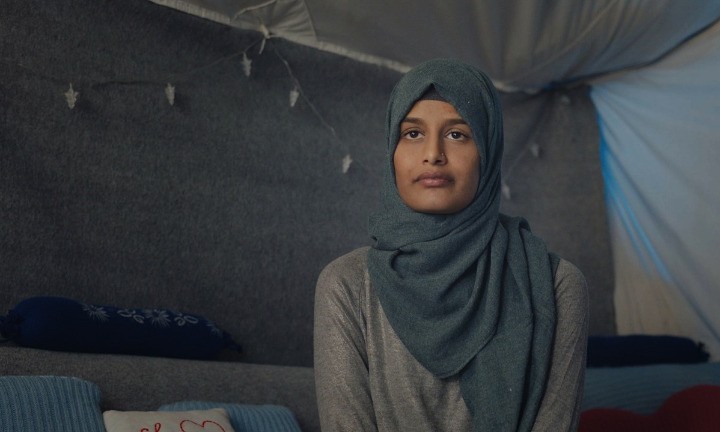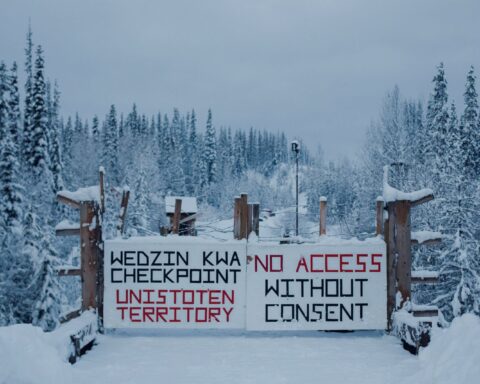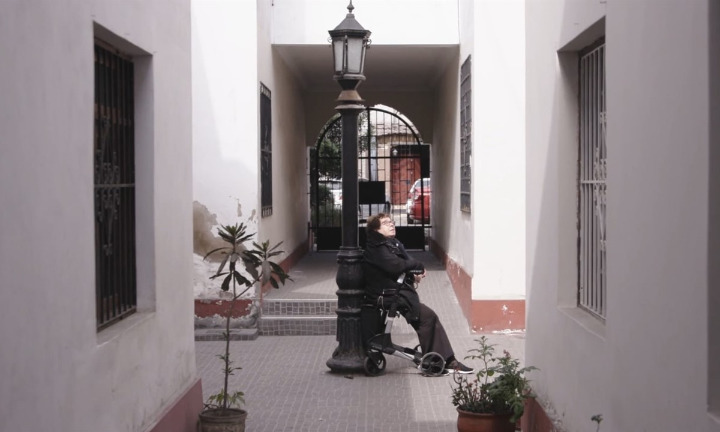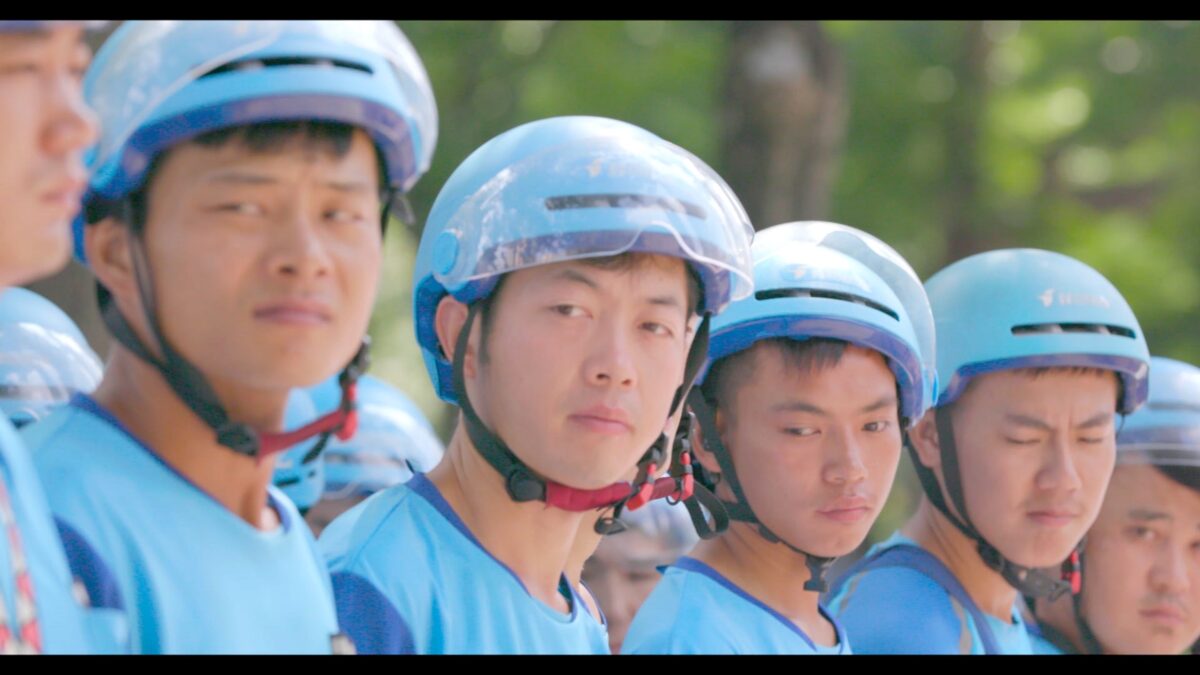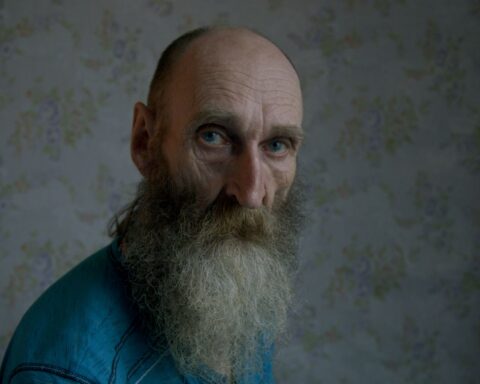Superficially, every war is binary in its construction. There is one side versus another, a dialectic of destruction where one side claims the moral high ground. Rules of engagement are often based on pragmatism rather than what’s right, especially against an enemy that claims to fight not merely for political purposes, but also for holy struggle. Alba Sotorra Clua’s The Return deftly navigates the border between these divides. It focussed on a group of women who have survived the battles of ISIS and found themselves in limbo living in a camp in Kurdish controlled Syria.
The title of the film is one shrouded in irony, given that none from this group of women who abandoned their countries of origin has been able to return. Each person is refused repatriation following their decision to join the caliphate. Perhaps the most remarkable subject is Sevinaz Evdike, an activist and Kurd who is literally guiding those who were not so long ago her enemy, treating them with kindness and respect while the rest of the word has, for reasons that are both debatable and understandable, abandoned this group of women to their own fates.
Sotorra Clua’s 2018 award-winning Commander Arian, a Story of Women, War and Freedom also saw a Hot Docs engagement, and it also followed similar moral complications surrounding the Kurdish people and their seemingly implausible ability to recognize the humanity of their advisories. With The Return, we get a particularly impactful look at several of these individuals who have achieved international notoriety. Among them is Shamima Begum, one of the British teens who travelled from the UK to find a new life with ISIS, and Hoda Muthana, an American who tweeted out death threats and calls to violence before heading to Syria. She is now viewed as a regretful mother wanting to go back to what she calls her home in the U.S.
The Return beautifully navigates these contradictions, never overtly passing judgment, nor neglecting to remind the audiences of the barbarity in which these women became active participants. It’s easy to succumb to the empathetic stories, just as it’s easy to write off all their experiences as apt recompense for their own diabolical decision to join the butchery, making the film both deeply unsettling and extremely powerful. This is a wide-eyed examination of these narratives that managed to both give voice to these women while never simplifying things to make them out to be mere hapless victims or lacking culpability in the choices they made (and continue to make).
Told over a period of several years, we witness the travails of living in a camp, while occasionally giving hints that even a river of sewage leaking into these haphazard tents is surely a better life than what they experienced towards the end of the battles against ISIS. There’s a sense of therapeutic confrontation with both the past and the need to hold onto some kind of home for a better life in this world, rather than the promised rewards of the next that fueled much of ISIS’s propaganda. This sentiment makes some of the testimony murky, for there’s no true understanding of just how cataclysmic their decision to abandon their citizenship has proven to be.
Sotorra Clua and her editorial team brilliantly weave both news reports and ISIS videos to quietly yet effectively contextualize and comment on the stories that the women provide, while always being careful not to so overtly push the story in one way or another. A particularly beautiful moment occurs when we see Evdike away from the camp, speaking to an elder about the responsibility that the Kurds have to truly live up to the spirit of their religious teachings. One of the women in the camp makes a similar comment of trying to reconcile how this Kurdish woman is able to come and be so generous with her spirit given her own personal tragedy, admitting that she, the ISIS bride, would not have necessarily been able to do the same. It’s a tiny glimpse into what drove these women to choose a life that has helped fuel one of the more catastrophic international barbarous actions of the century.
The Return makes for an extremely tough watch, giving voice and by extension empathy to entire groups that weaponized the very tools of Western openness to turn against itself, employing the methods of televisual persuasion and social media outlets to advocate for a tyrannical, medievalist cult state. Just as the women were swayed into this apocalyptic life, so too is it easy to be simply swayed by the sob stories and ignore the poisonous behaviour of those with whom they shared their lives. It’s an extremely complicated situation, and the film navigate these elements quite remarkably.
Above all, The Return provides unique insight into the thoughts of this group of individuals, going beyond the headlines and diving headfirst into a moral quandary of epic proportions. Contrast the tear-filled recollection of a woman who lost three of her children with the moment we see the new generation playing on clumps of rusted metal, spewing forth notions of Jihad under which they’ve been schooled.
Contrast this group with the unseen women in the camp who sew up a tent and light it on fire in order to murder those who do not believe in the ISIS mission years after the overt battlefield defeat. Like the too brief glimpse we get of the status of the men imprisoned following the battles, The Return: Life After ISIS grants audiences a very small window into a world that’s too easily simplified. Sotorra Clua, her team, and her subjects provide the briefest of entries into this world. In so doing, the film illustrates the complexity of the situation with extreme effectiveness. The Return speaks to generations affected by these conflicts and leaves us both informed and no less certain about what the just solution to the situation of these survivors should be.
The Return: Life After ISIS screens at Hot Docs 2021.




